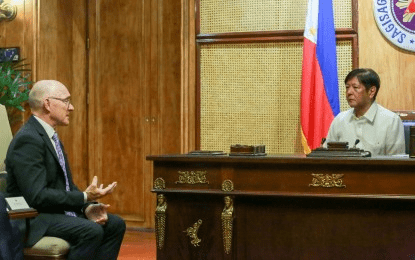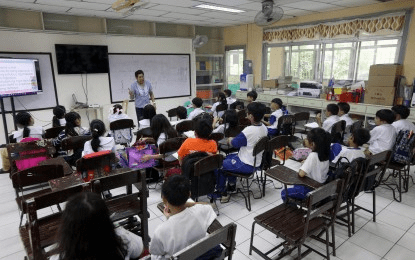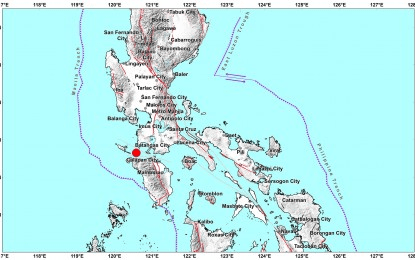By Ruth Abbey Gita-Carlos

MANILA — President Ferdinand R. Marcos Jr. on Tuesday reaffirmed the Philippines’ stance against the proliferation of nuclear weapons, as he stressed that there would be no winners in a new potential arms race.
Marcos issued the statement after his meeting with Dr. Robert Floyd, executive secretary of the Comprehensive Nuclear-Test-Ban Treaty Organization at Malacañan Palace.
“In a nuclear war, no one wins. I met with Dr. Robert Floyd, Executive Secretary of the Comprehensive Nuclear-Test-Ban Treaty Organization, to reaffirm the Philippines’ commitment to the non-proliferation of nuclear weapons,” he said in a Facebook post.
“A world free from nuclear threat, is a safer home for all,” he added.
The Philippines signed the Comprehensive Nuclear-Test-Ban Treaty (CTBT) on Sept. 24, 1996 and ratified it on Feb. 23, 2001, becoming the third Southeast Asian nation to ratify the treaty.
The CTBT prohibits all nuclear weapon test explosions and any other nuclear explosion anywhere in the world.
Compliance with the terms of the CTBT is monitored by a global verification regime, which uses seismic, hydroacoustic, infrasound and radionuclide technologies to detect evidence of possible nuclear explosions.
The Philippines and Preparatory Commission for the CTBT signed a facility agreement that entered into force on Jan. 8, 2004, giving the body the legal authority to carry out work on International Monitoring System (IMS) facilities in the country.
Under the CTBT’s terms, the Philippines hosts three verification stations, including two auxiliary seismic stations in Davao (AS079) and Tagaytay (AS080), and a radionuclide station in Quezon City (RN52).
The stations form part of the 337-facility International Monitoring System (IMS), a key element in the global verification regime.
The Philippines also signed the Treaty on the Prohibition of Nuclear Weapons (TPNW) or the Nuclear Weapon Ban Treaty on Sept. 20, 2017 in New York.
The TPNW was ratified by the Senate in 2021, making the Philippines the 53rd state to ratify the said treaty.
The TPNW covers a comprehensive set of prohibitions in various activities, including the development, testing, production, acquisition, and possession, among others, of nuclear weapon. (PNA)




